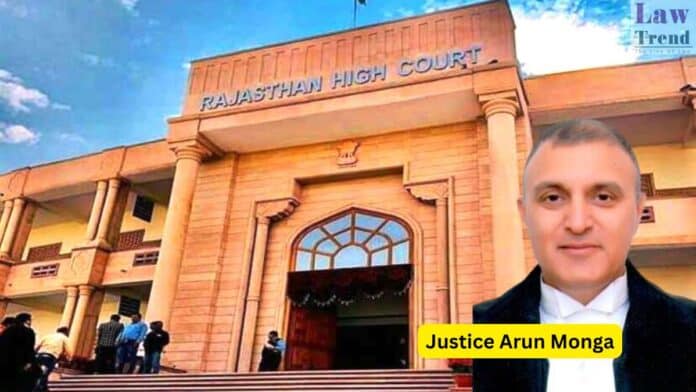In a notable judgment, the Rajasthan High Court, Jodhpur Bench, ruled that a pending criminal case under Section 498A of the Indian Penal Code (IPC) does not disqualify an individual from being appointed to government service. Justice Arun Monga, while delivering the judgment in Amrit Pal v. State of Rajasthan & Ors. (S.B. Civil Writ
To Read More Please Subscribe to VIP Membership for Unlimited Access to All the Articles, Download Available Copies of Judgments/Order, Acess to Central/State Bare Acts, Advertisement Free Content, Access to More than 4000 Legal Drafts( Readymade Editable Formats of Suits, Petitions, Writs, Legal Notices, Divorce Petitions, 138 Notices, Bail Applications etc.) in Hindi and English.




